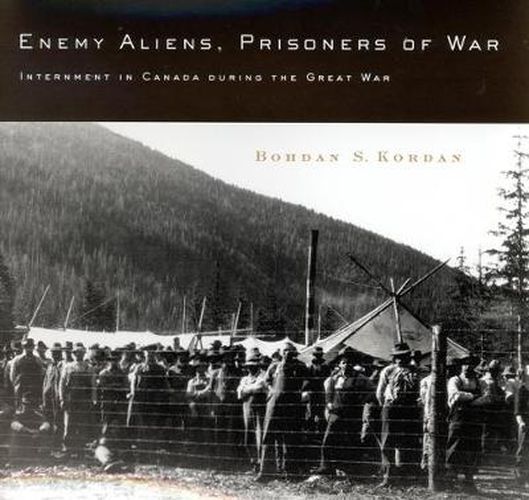Readings Newsletter
Become a Readings Member to make your shopping experience even easier.
Sign in or sign up for free!
You’re not far away from qualifying for FREE standard shipping within Australia
You’ve qualified for FREE standard shipping within Australia
The cart is loading…






Some eight thousand immigrant-settlers of enemy nationality - so called enemy aliens - were interned as civilian prisoners of war in Canada during World War I. The majority, deemed second-class prisoners, were sent to the hinterland of the Canadian Rockies where they were compelled to work on a variety of public works projects under difficult conditions and in problematic circumstances. Eventually reintegrated into Canadian society, their internment raises important questions about the national conception of Canada and its ambitions at the turn of the century, the nature of state-minority relations in wartime, and the role and responsibilities of government in moments of national crises. Focusing on these and other thematic issues, Bohdan Kordan assesses the policy and practice of civilian internment in Canada during the Great War and provides a clear yet critical statement about the complex and troubling nature of this experience. Period photographs and first person accounts augment the text, helping to communicate not only the layered and textured character of the experience but the human drama of the story as well. A comprehensive roster identifying those interned in the frontier camps of the Rocky Mountains is also included.
$9.00 standard shipping within Australia
FREE standard shipping within Australia for orders over $100.00
Express & International shipping calculated at checkout
Some eight thousand immigrant-settlers of enemy nationality - so called enemy aliens - were interned as civilian prisoners of war in Canada during World War I. The majority, deemed second-class prisoners, were sent to the hinterland of the Canadian Rockies where they were compelled to work on a variety of public works projects under difficult conditions and in problematic circumstances. Eventually reintegrated into Canadian society, their internment raises important questions about the national conception of Canada and its ambitions at the turn of the century, the nature of state-minority relations in wartime, and the role and responsibilities of government in moments of national crises. Focusing on these and other thematic issues, Bohdan Kordan assesses the policy and practice of civilian internment in Canada during the Great War and provides a clear yet critical statement about the complex and troubling nature of this experience. Period photographs and first person accounts augment the text, helping to communicate not only the layered and textured character of the experience but the human drama of the story as well. A comprehensive roster identifying those interned in the frontier camps of the Rocky Mountains is also included.